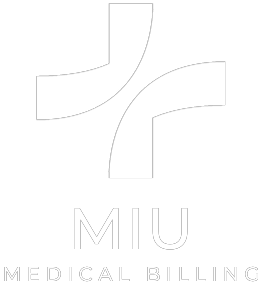Introduction
RCM, also known as Billing and Coding, is responsible for the financial management of organizations for health care. This critical process encompasses the life cycle of patient care from the economic perspective. Medical billing and revenue Cycle Management handles all clinical and administrative business processes related to patient service revenue identification, acquisition, and administration. Any healthcare organization that implements the knowledge of RCM will realize better profitability, high patient satisfaction, and efficiency at the organizational level.
What is Revenue Cycle Management?

The definition of Revenue Cycle Management is the exercise by healthcare providers of a kind of check on the business line, focusing on the level of patient care episodes from registration of the patient and appointment making to billing and collection of the balance. This broad method of handling funds in the health sector also helps guarantee that the service deliverers are remunerated as expected. It involves several processes, including patient registration, insurance verification, charge capture and submission, payment posting, and denial management. They inform us that by correctly managing the revenue cycle, healthcare organizations are in a position to raise their square measure and trim down their billing mistakes in addition to enhancing cash flows.
Critical Components of Revenue Cycle Management
The RCM process is a series of interdependent and coherent financial process management. Data components include pre-registration, registration, charge capture, claims submissions, remittance operations, and denial handling. These elements are essential to the proper functioning of RCM and are directly linked to managing financial stability. For instance, improved pre-registration and registration result in the avoidance of claim denial. Likewise, adequate charge capture guarantees services warrant the relative billing and charges incurred. Revenue Cycle Management in medical billing places a lot of emphasis on each step because, if any of them is disrupted, the health institution will likely incur losses through revenue leakage and inefficiencies.
Benefits of Effective Revenue Cycle Management
Optimal Automation and Management of the Revenue Cycle have the following advantages for the healthcare provider. First, it enhances work with petty cash since it accelerates consumer money transition. It also helps improve billing and coding accuracy, resulting in fewer claim denials and quicker reimbursements. Also, medical billing revenue cycle management leads to high patient satisfaction regarding finances since patients are well-informed. An added advantage of RCM is that it distances administrative roles from patient care, enabling healthcare providers to offer the best service since they are now free to attend to patients. Further, it is informative to the management in strategic planning and in developing new ways of implementing particular business processes.
Hospital Revenue Cycle Management
Several significant issues are associated with hospital revenue cycle management because of the nature of the hospital’s functioning. A hospital environment has to consider the departments in the facility, the different service lines, and the numerous procedures and treatments offered. It relates to setting up collaboration between various departments: emergency centers, inpatient facilities, outpatient centers, and specialty departments. Medical billing for hospitals is a complex process that requires highly specialized systems that can process large volumes of transactions and are compatible with numerous EHRs. Strategic and efficient hospital RCM is essential in improving the health organizations’ financial performance. It determines reimbursement for services delivered and plays a critical role in the hospital’s financial health amid rising competitive and regulatory pressures in the healthcare sector.
Revenue Cycle Management Consulting

In the current complex world of healthcare delivery, many organizations seek assistance from Revenue Cycle Management consulting solutions. RCM consulting firms focus on identifying and improving revenue-related activities within organizations furnishing services to the healthcare industry. Many of these consultants come with the best practices in this industry, new technologies, and valuable data on RCM in medical billing. RCM consulting reviews the financial processes in a healthcare facility, providing solutions to the management for process reengineering, application of new systems, staff education, and overall planning for improvement. Utilizing external knowledge and support means that healthcare organizations would significantly reduce the time it takes them to attain positive changes and improve RCM.
Importance of Certified Provider Credentialing in Revenue Cycle Management
It is important to note that certified provider credentialing significantly impacts the overall processes of Revenue Cycle Management. This process also ensures that people providing health care services have all the qualifications and paperwork in place for them to practice and be paid for their services. Provider credentialing is central to medical billing’s RCM as it requires current and accurate information. Without credentialing, the claims will not be paid, meaning less revenue collected and many additional work hours. Certified provider credentialing is a formal process for the confirmation of education, training, licensure, and other personal characteristics such as identity and nationality of professional staff of health care facilities. Credentialing can be an effective way for healthcare organizations to break even several barriers related to claim denials and payer compliance while protecting their image as effective health institutions. Optimal RCM involves an efficient credentialing process to enhance the billing process and fund recovery.
The Future of Revenue Cycle Management Medical
Technological innovations and changes in healthcare policies determine the future of the medical field’s Revenue Cycle Management. These technologies, such as artificial intelligence and machine learning, are increasingly incorporated into RCxM to increase forecasting precision, automate claims handling, and intelligently manage denials. Some of the medical trends of RCM are increased price transparency and patient-focused billing. As value-based care models continue to emerge, RCM must supplement the new reimbursement models and compliances related to quality metrics. The rise in the application of big data in the RCM will give healthcare institutions proper insights into their financial metrics and strengthen the decision-making processes. This would provide healthcare organizations the best chance at an economic profit in an ever-evolving healthcare market.
Conclusion
Revenue Cycle Management in the life of medical billing constitutes an essential pillar that determines the financial performance of a healthcare firm. Right from the registration of the patient to the time when the final payment is made, efficient RCM guarantees a leakproof process, generates the highest revenues, and simultaneously satisfies the patients. Since the development of the healthcare facility is on the right track, it is vital for providers of all sizes how to work with RCM. Therefore, care delivery organizations can enhance their RCM to provide healthcare facilities with strong financial outcomes when the healthcare market is unstable. The future challenges and opportunities ahead of RCM depict a promising picture toward managing the monetary part of the healthcare sector with enhanced performance.




